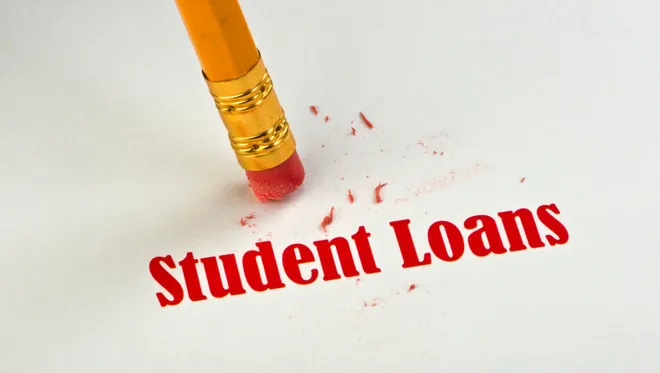
Top Best Student Loans of 2024
Best Student Loans: You’re staring down the barrel of another semester, tuition bill in hand. We get it – paying for college is no joke these days. But before you resort to living on ramen noodles for the next four years, check out our picks for the best student loans of 2024. We’ve dug into all the options, from federal loans to private lenders, variable rates to fixed rates, you name it.
In this article, we’ll break down exactly what to look for when taking out student loans. You want to make sure you don’t overborrow but still have enough to cover costs. And you’ll want to pay the least interest possible over the long run. Luckily, we’ve crunched the numbers for you already! Read on for the inside scoop on interest rates, fees, repayment options, and more so you can make the smartest decision when financing your education.

What are Student Loans?
Student loans are funds borrowed from a bank, credit union, or the government to help pay for college or career school. They allow you to pay for your education over time, rather than paying the full cost up front. Student loans should be used to pay for essential expenses like:
- Tuition and fees
- Room and board (housing and food)
- Books
- Supplies
The two main types of student loans are:
- Federal student loans: Offered by the government, including Stafford, Perkins and PLUS loans. They typically offer fixed interest rates and flexible repayment options. Federal student loans should always be borrowed first before private student loans.
- Private student loans: Offered by banks, credit unions, and private lenders. They typically have variable interest rates and less flexible repayment terms. Only borrow private student loans if you’ve maximized all federal student loan options.
When you take out a student loan, you agree to repay the amount you borrow plus interest. You don’t have to repay most federal student loans until after you leave school or graduate. The repayment period typically lasts 10-25 years. Private student loans usually require repayment within a few months after you leave school, and most must be repaid within 15 years.
Student loan debt is a serious financial commitment, so borrow only what you need to pay for your education expenses. Make sure you understand the details of your student loans and your responsibilities before accepting the loan funds. With proper planning and budgeting, student loans can be an affordable way to invest in your future. But be cautious, as too much student loan debt can negatively impact your financial wellbeing for years after graduating.
Best Student Loans to Consider in 2024
When choosing a student loan, you’ll want to compare interest rates, repayment terms, and eligibility requirements to find an option that fits your needs. Here are some of the best student loans to consider in 2024:
1. The federal government offers subsidized and unsubsidized student loans with fixed interest rates. Subsidized Stafford loans don’t accrue interest while you’re in school, so they’re a great option if you qualify based on financial need. Unsubsidized Stafford loans start accruing interest immediately but have flexible repayment plans like Income-Driven Repayment.
2. Private student loans typically have variable interest rates that may be higher or lower than federal rates. Lenders like Sallie Mae, College Ave, and CommonBond offer loans with competitive rates and no origination fees. These lenders allow you to compare personalized rates without affecting your credit score. Private loans usually require a cosigner and steady income to qualify.
3. Credit union student loans often have lower interest rates and more lenient eligibility criteria than big banks. Many credit unions offer student loans, student lines of credit, and student loan refinancing. You’ll need to join the credit union, but membership is usually open to anyone.
4. Peer-to-peer student loans are funded by investors, not banks, so rates may be lower. Upstart and LendingClub offer student loans and refinancing with fixed or variable rates based on your credit. P2P loans have less stringent eligibility criteria than traditional lenders but limits on loan amounts.
In 2024, do thorough research on the latest student loan options and changes before choosing a lender. Make sure you understand the loan terms, interest rates, and repayment obligations to find a student loan you can afford to pay off. By comparing multiple offers, you can get the best deal on financing your education.
READ ALSO: USAA Personal Loans Review
FAQs
Do I need a cosigner for a student loan?
A cosigner, like a parent or guardian, can help you qualify for a student loan and may get you a lower interest rate. However, the cosigner is also responsible for repaying the loan if you can’t make payments. If you have good credit and a part-time job, you may be able to get approved for a student loan on your own without a cosigner.
What types of student loans are available?
The two main types of student loans are:
- Federal student loans: Offered by the government, including Perkins loans, Stafford loans, and PLUS loans. They offer benefits like fixed low interest rates, loan forgiveness, and deferment options.
- Private student loans: Offered by banks, credit unions, and online lenders. They typically have higher and variable interest rates. Only use private loans if you’ve maxed out federal student aid.
How much should I borrow?
Only borrow what you need to pay for essential college expenses like tuition, room and board, books, and supplies. Keep track of how much you’re borrowing and aim to graduate with limited student loan debt. As a rule of thumb:
- Freshmen: Borrow $5,500-$7,500 per year.
- Sophomores: Borrow $6,500-$8,500 per year.
- Juniors and Seniors: Borrow $7,500-$9,500 per year.
Remember, the less you borrow, the less you’ll have to repay after college. Make a budget, cut costs, and consider a part-time job to minimize student loan debt.
When do I repay student loans?
Most federal student loans offer a grace period of 6-9 months after you graduate or leave school before repayment begins. Private student loans typically require repayment to begin immediately. It’s best to start making payments as early as possible to avoid interest charges accruing and your balance increasing. Create a repayment plan that fits your budget—you can choose from standard, graduated, income-driven, or extended repayment plans. Stay in contact with your loan servicer to make on-time payments each month.




